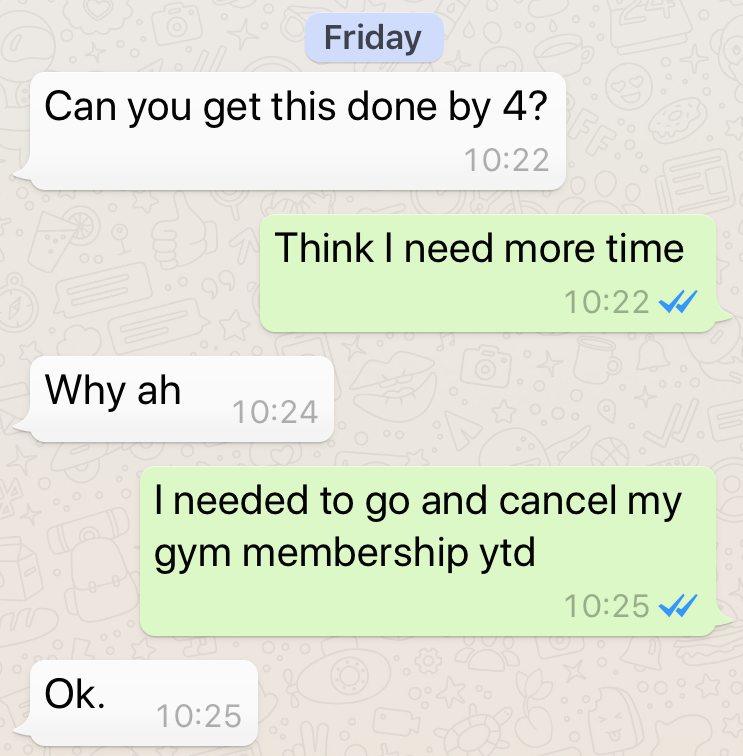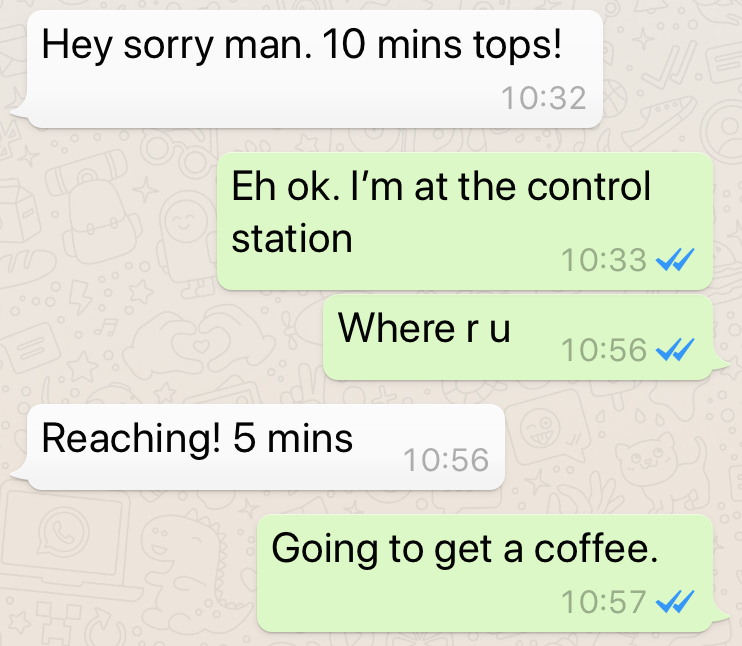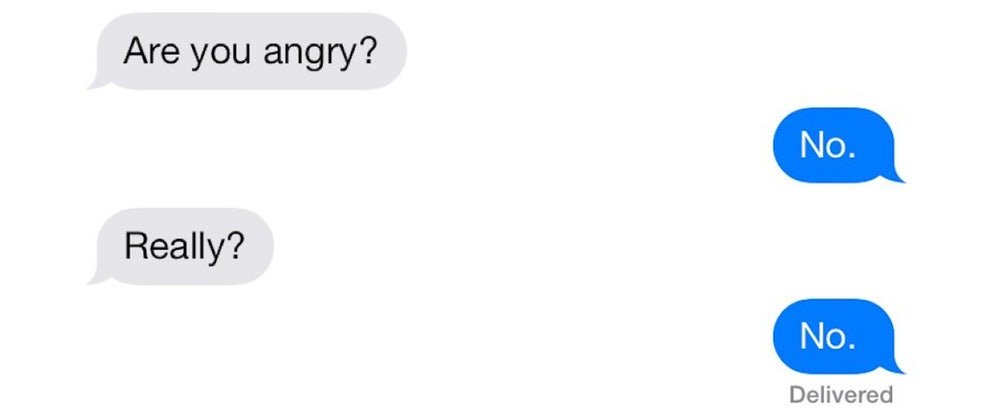Messaging is a weird science that obeys no known law of the universe.
A solitary ‘?’ sounds accusatory, but a string of ‘????’ signals amazement, curiosity and shock. It screams: “TELL ME MORE RIGHT NOW.”
Similarly, “HAHAHAHA” sounds like real laughter, while ‘haha’ sounds like strained politeness, a fake smile that leaves your eyes wide open and your teeth awkwardly exposed.
Last, but never least, there’s the full stop. Or period.
Whatever you call it, this poor dot is the closest we have to declaring a cold war via WhatsApp. Its presence indicates hostility and barely restrained rage. When a message is dotted, you know the other person is being passive-aggressive. They are angry and want you to know it but not brave enough to risk direct confrontation.
If the passive-aggressive period were a person, it would be that cartoon villain lurking over you with a raised knife but quickly replacing the blade with a smile when you turn around at the last moment.
The full stop can produce this curious effect because text messages normally require no punctuation. In a normal Whatsapp conversation between 2 people, shit just flies back and forth sans grammar.

When you hit send, the break at the end of your message has an implied punctuation of its own. It can be a period, a comma or even a question mark, depending on the context. The absence of punctuation is not a vacuum but a silence pregnant with meaning.
Everything changes when you take those two extra taps to add a superfluous period. Suddenly, “okay” doesn’t mean okay anymore. “Okay.” means “Not okay, you better think about what you’ve done.”
Likewise, “Sure.” means “You pain in the arse”. “No problem.” is typically code for “Fine, I can fix the damn thing you broke.”
Search your feelings; you know this to be true.
A single-word reply garnished with a full stop is the universal sign that someone is about to snap. Full sentences punctuated with periods read like a Head Prefect laying down the law.
When you are in a relationship, Lesson #1 is never to take the “I am okay.” at face value—rivulets of sweat should be dripping down your face if, perchance, you glimpse the dot.
“Ignore me at your own risk,” it hisses before turning away and forcing you to give chase.

What fascinates me is the question of why. Hundreds of well-punctuated reports and emails are sent and pls revert-ed every day. But why is it only full stops in text messages that produce such anxiety and suspicion?
Context is probably a core reason. As mentioned earlier, text messages are an inherently casual mode of communication. Although words appear onscreen, the quickfire ping-pong of a Whatsapp exchange is closer to vis-a-vis conversation than the formalised writing in, say, this article.
That’s why full stops are so unnatural and foreboding when they appear mid-text. It’s like your boss whispering, “Can I have a word in private?” over lunch. Their sudden appearance changes the tone of a conversation from chill to serious/frosty because it forces a formal element upon a normally formless space where anything goes.
The subtext of such formality is almost always, “I am no longer having fun” or “Mind yourself now”—reasons implied but not given to cause maximum disquiet and anxiety.
Part of this phenomenon can be traced back to texting’s origins. Just like the old-fashioned phone call which has long served as a substitute, messages prioritise emotion over information, immediacy over accuracy. Your interest (or presence) is usually judged not by the quality of grammar in your reply, but by its speed.
This preference for raw, unvarnished sentiment makes an enemy of well-placed periods. It’s an upside-down space where punctuation implies premeditation and, with it, self-censorship, insincerity, distance, and irony.
All the crucial elements for passive-aggressive behaviour.

This sounds like garden-variety navel-gazing, but surprisingly, it is not.
According to a study by Binghampton University quoted by The Washington Post, there is a consensus that text message full-stops are insincere. I would not go so far as to call their perpetrators ‘heartless’ as the Post has done or label these messages ‘grounds for divorce’. But grammatical correctness has definitely fallen from the good graces of Whatsapp etiquette.
And I don’t think it’s likely that they will make a return.
So how do you deal with a “Sure.” or an “Aight, no problem.”?
We have no cast-iron answer for that. If you do actually behave in this shitty manner that warrants censure, please go and apologise.
If you have a clear conscience, the best course is to pretend that the full stop never happened. After all, passive-aggressiveness only works if it gets a rise from its target. Once that happens, they can deny you closure till kingdom come by simply denying that they are annoyed and insisting that everything’s fine (while being very not fine).
Don’t let yourself fall into that trap. Infuriate them by texting as normal until they snap and become actively aggressive.
Then, you can enjoy the satisfaction of demolishing them with your righteous fury.
Or just reply with an “Alright.” after they finish the rant.
Or better yet, “K.”





